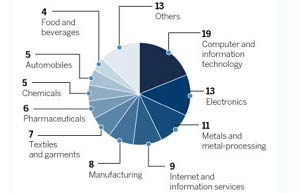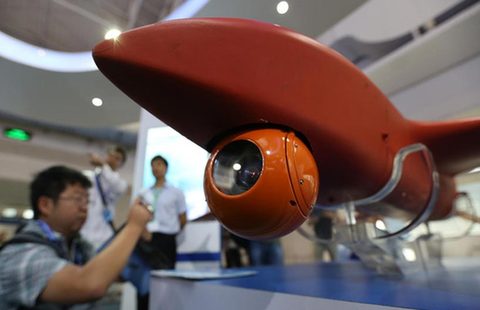Increased support promised for small companies
(China Daily) Updated: 2014-09-18 07:49China is to further strengthen its support for small and micro-businesses through political and fiscal measures, including tax exemptions for companies with monthly sales of less than 30,000 yuan ($4,880).
The central government also vowed to make "tangible progress" in establishing small and medium-sized banks funded by private capital to facilitate financing, as was announced after the most recent executive meeting of the State Council on Wednesday.
From Oct 1 until the end of 2015, companies with monthly sales of less than 30,000 yuan will be exempted from the value added tax and business tax, according to the circular. The current benefits apply only to small businesses with monthly sales of less than 20,000 yuan.
 |
 |
Yang Yiyong, a researcher with the Academy of Macroeconomic Research of the National Development and Reform Commission, said that encouraging financial support to small and micro-businesses is important because most commercial banks are not willing to offer loans to these businesses.
"There are a large number of small and micro-businesses, and it's difficult for banks to verify their assets. It's more risky for banks to offer them loans than to large companies," he said.
"But offering loans to these businesses is a social responsibility that the government is persuading banks to take on."
The State Council made the decisions amid the central government's continuing efforts to streamline the administration and delegation of power to lower levels, which will make it easier for small startups to enter the market.
More than 1.76 million new enterprises have appeared since the registration reform on March 1, a 68 percent increase from the same period last year, said Zhou Shiping, director of the department of enterprise registration under the State Administration for Industry and Commerce.
Supporting small and micro-businesses will not only help keep economic growth, but also facilitate urbanization, said Ding Yuanzhu, deputy director of the decision-making consultancy department of the Chinese Academy of Governance.
"Small and micro-businesses help migrant workers settle in the city," he said.
"The government has set a goal to grant urban residency to about 100 million people who have moved to cities from rural areas by 2020. We must offer them job opportunities to achieve the goal."
Also, based on the Interim Measures for Social Assistance signed by Premier Li Keqiang, effective since May 1, the government is determined to establish a temporary relief system to provide a safety net for citizens who are in accidents or natural disasters or who have a serious illness, according to the circular of the Wednesday meeting.
The local governments will pay for the stipends, while the central government will offer "appropriate subsidies". Large and medium-sized enterprises and charity organizations are encouraged to set aside public funds to help those in need, according to the meeting's decisions.
In the third plenary meeting earlier on Wednesday, the State Council also voted to appoint incumbent Macao Special Administrative Region Chief Executive Chui Sai-on as chief executive for a second five-year term. His new term will start on Dec 20, the 15th anniversary of Macao's return to Chinese sovereignty.
Chen Mengwei and Wang Qingyun contributed to this story.
- BYD G5 hits market with connectivity
- Apple to unveil new iPads, operating system on Oct 21: report
- New momentum over China-Singapore economic corridor
- Home prices decline in most Chinese cities in August
- China's high-growth aviation gains global concerns
- Cambodian telecom firm cooperates with Huawei to build 4G network
- Trade growth is Dubai's new 'desert miracle'
- Baijiu industry banks on surge in online sales

















